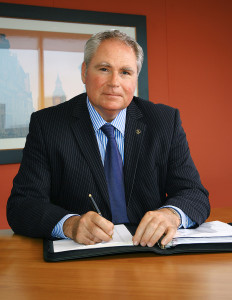
From: The Will Company
A Discretionary Trust is a type of Trust where the trustees are given complete discretion to pay or apply the income or capital of the assets that are in the Trust, for the benefit of one or all of the beneficiaries. They have control over how much to distribute at any given time, when to make distributions and who to make them to.
Can I have one beneficiary in a Discretionary Trust?
Due to the Discretionary nature of the Trust, there needs to be more than one discretionary beneficiary. There can also be a class of people that are appointed as the discretionary beneficiaries, i.e. children or grandchildren. Charities can also be a named discretionary beneficiary.
Can the beneficiary of a Discretionary Trust also be a trustee?
Yes, they can. Where the beneficiary is also a trustee, we would advise one other trustee is appointed who is completely neutral to avoid any conflict of interests.
What is the benefit of this type of Trust?
Placing the assets in a Discretionary Trust protects a beneficiary’s share where they are financially unstable. Some may not be trusted to look after a large inheritance and there may be a worry that the money will be spent at once. This type of Trust allows trustees to manage the Trust fund to prevent this from happening whilst providing the financial assistance as and when it is required.
It can also be useful where a beneficiary has a drink, drug or gambling problem and there are worries that gifting the inheritance outright would worsen their addiction.
This could also be used to preserve funds for a minor until they reach an age where they can manage the money for themselves.
Some beneficiaries may have already reached the IHT threshold and do not want the inheritance they are to receive to increase the size of their own estate. In this situation, the trustees could simply lend the money to the beneficiary.
A further use of this type of Trust is that it can safeguard money from a beneficiary who is currently going through or likely to go through a divorce as the funds are treated as belonging to the Trust. However, specialist advice should be taken if this is the intention as the Trust would require careful management.
Can a property go into a Discretionary Trust?
Yes, it can.
Can the RNRB still apply if a share of a property goes into a Discretionary Trust?
Where a main residence passes to a Discretionary Trust, the RNRB will not apply.
However, the RNRB could be recovered if the property is appointed out to direct descendants within 2 years of the testator’s date of death – section 144 of the Inheritance Act 1984.
Can the beneficiaries make a request for funds?
Yes, they can. However, the trustees are required to act in the best interests of the Trust and therefore they can refuse the request. Essentially, the trustees have absolute discretion with the funds.
Can the testator request that the Trust funds are used for a certain purpose?
The trustees have complete discretion over the Trust funds and are required to always act in the best interests of the Trust.
If the testator does have wishes for how they would like the funds to be use, i.e. university fees, deposit for a house etc., it is advisable for the testator to write a Letter of Wishes accompanying the will which provides some guidance to the trustees in how they would like the assets to be distributed.
A Letter of Wishes is not a legally binding document and therefore there is no obligation placed on the trustees to follow them.
Do the assets in the Trust form part of the beneficiary’s estate for IHT purposes?
No, it does not. Any assets that are within the Discretionary Trust belong to the Trust only. Although the assets aren’t subject to IHT in then beneficiaries’ estates, it is important to add that the Trust may be subject to relevant property regime charges.
Can loans be made from the Trust to beneficiaries?
Yes, it can be if the trustees agree to this. Any loan from the Trust to a beneficiary should be documented properly and by way of a loan agreement.
I am worried about money being given from the Trust to the beneficiary directly, can it be used to benefit in other ways?
If there are concerns about the money being given to the beneficiary directly, the trustees can assist in other ways. For example, they can issue food vouchers to the beneficiary which will ensure it can only be spent on certain items. If the beneficiary lives in rental accommodation, for example, they can arrange to pay the landlord directly.
Will the discretionary beneficiaries be treated fairly?
No particular beneficiary has an interest in the Trust or an entitlement to the Trust funds – they only have a potential interest until the trustees actually exercise their discretion in their favour.
Speak to Sussex Will Writers about organising your estate, Will and Lasting Power of Attorney.
Click to Call us on 01903 533681
or get in touch by emailing: info@sussexwillwriters.co.uk
 Sussex Will Writers
Sussex Will Writers
T: 01903 533681
M: 07734 744886
E: info@sussexwillwriters.co.uk
Could you do with some FREE, sound advice on:
- Writing a Will – What do I need and how much does it cost?
- Creating Lasting Powers of Attorney – If I was incapacitated who can act on my behalf?
- Property Protection Trusts – Can these really save Care Home Fees?
- Pre-Paid Funeral Plans – With so many to choose from how do I decide which plan is best?

There is so much confusion on these vital areas of estate planning, that sometimes just a chat with an expert in the field can clear up misunderstanding and set out the way ahead, without all the legal jargon.
Or complete the form below
Steve Worsfold
Affiliate Member of the Society of Will Writers
Advising on Wills/Trusts/Probate/Powers of Attorney

Mobile: 07734 744886
Office: 01903 533681
Email: steve@sussexwillwriters.co.uk
Website: www.sussexwillwriters.co.uk
Protecting What’s Precious to You,
Now and in the Future
Sussex Will Writers is proud to support Dementia Friends,
an initiative of The Alzheimers Society
Our business is certified ‘Safe to do business with’ and ‘Code compliant’
by the UK’s largest regulatory body for Will Writers, The Society of Will Writers.
Steve Worsfold has been an Affiliate Member of the Society for 15 years.



